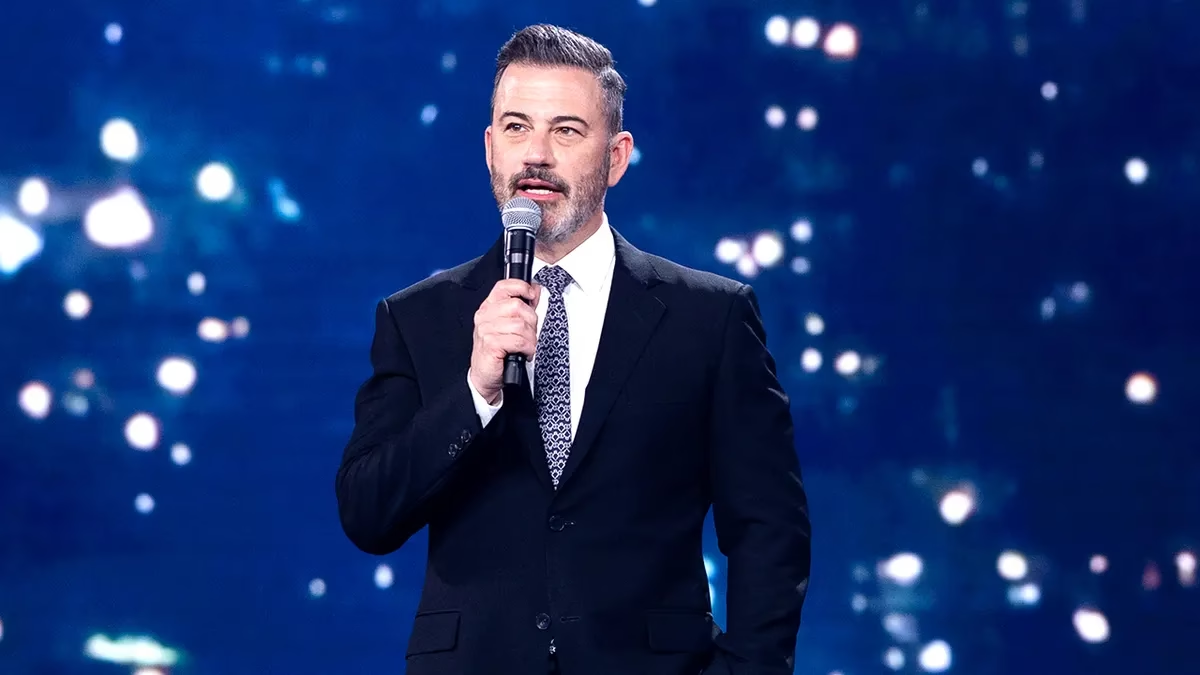Who Will Be the Next Pope? Cardinals Face a Historic and Unpredictable Choice
The selection of the next pope is one of the most consequential decisions facing the Catholic Church—one that will shape the future of its 1.4 billion baptized followers across the globe. But this time, the process promises to be unusually open and unpredictable.
The College of Cardinals will soon gather in conclave within the Sistine Chapel, tasked with debating and ultimately electing the next pontiff. Voting will continue until one candidate receives the required two-thirds majority.
What makes this conclave unique is the makeup of the voting body. Nearly 80% of the 135 eligible cardinal-electors were appointed by Pope Francis, meaning many of them are participating in a papal election for the first time. This new generation of cardinals brings a broader global outlook—and for the first time ever, less than half are European.
However, Francis’ appointments don’t fall neatly into “liberal” or “conservative” categories. His choices reflect a more nuanced and diverse church, making it harder than ever to predict which direction the College of Cardinals may lean.
Could the next pope be from Africa or Asia? Might the cardinals turn to a seasoned insider from the Vatican’s inner circles? Or will they look to a rising pastoral figure who reflects Francis’s values?
As the Church prepares for this historic decision, here are some of the names emerging as potential successors to Pope Francis.
Pietro Parolin
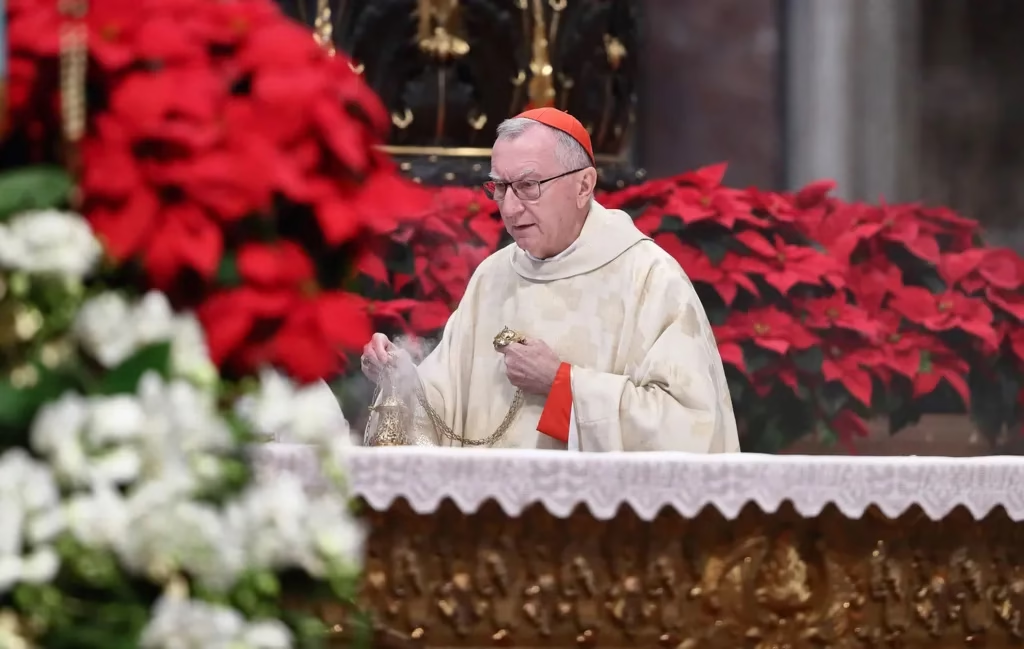
Nationality: Italian
Age: 70
Soft-spoken and deeply experienced, Italian Cardinal Pietro Parolin has long been seen as one of the most influential figures in the Vatican. As Secretary of State under Pope Francis, Parolin functioned as the pontiff’s chief adviser and head of the Roman Curia—the central administrative body of the Catholic Church. In many ways, he served as the Vatican’s “deputy pope.”
This high-profile role and his extensive diplomatic experience have made him a frontrunner in the eyes of many observers. Supporters praise his global perspective and pragmatic approach, suggesting he would continue Francis’s emphasis on outreach and international engagement. However, his critics worry that his diplomatic leanings may come at the expense of doctrinal clarity.
Despite his moderate tone, Parolin has not shied away from traditional stances on key issues. He notably condemned Ireland’s 2015 vote to legalize same-sex marriage, calling it “a defeat for humanity”—a comment that drew both criticism and praise.
Though bookmakers favor him, Parolin is no stranger to the unpredictability of papal elections. He is surely mindful of an old Italian proverb: “He who enters the conclave as pope leaves it as a cardinal.”
Historically, Italians have dominated the papacy—213 of 266 popes hailed from Italy. Yet, with the Church’s leadership increasingly shifting away from Europe, the possibility of another Italian pope may be slimmer than ever.
Luis Antonio Gokim Tagle
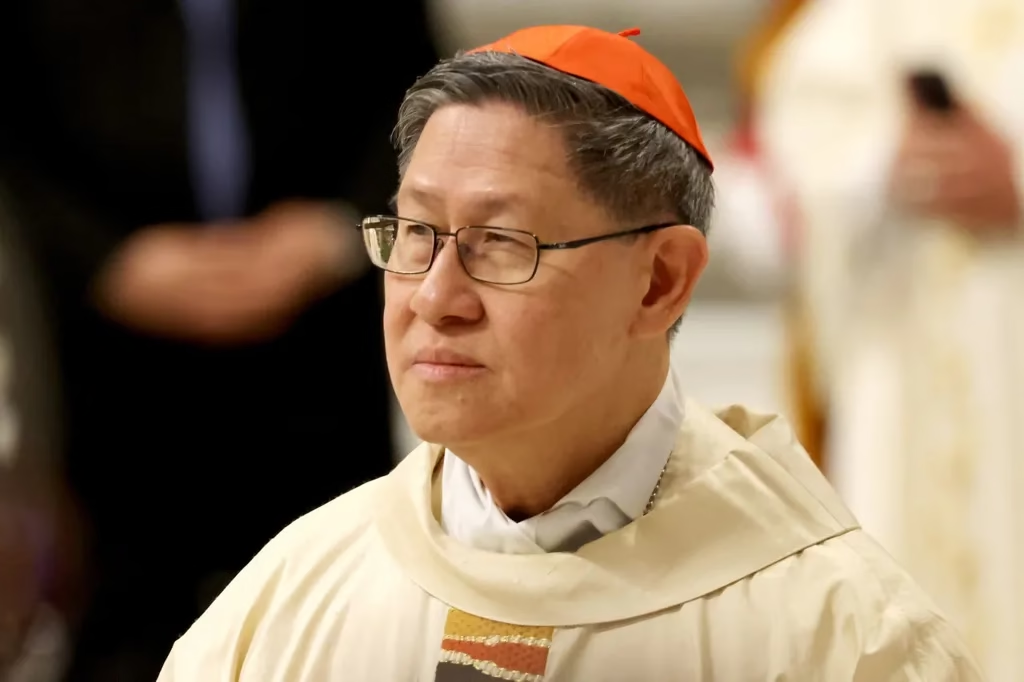
Nationality: Filipino
Age: 67
Could the Next Pope Come from Asia? Spotlight on Cardinal Luis Antonio Tagle
Among the potential successors to Pope Francis, Cardinal Luis Antonio Tagle of the Philippines stands out as a widely respected and charismatic figure. With decades of pastoral experience, he is known not for Vatican diplomacy or legal expertise, but for being a shepherd among the people.
In the Philippines—where around 80% of the population identifies as Catholic—the Church plays a deeply influential role. The country now boasts five members in the College of Cardinals, the most in its history, creating a potentially powerful bloc of support should they unite behind Tagle.
Often referred to as the “Asian Francis,” Cardinal Tagle shares many of Pope Francis’s key values, particularly his focus on social justice and empathy for migrants. He is widely seen as a moderate voice in the Church—compassionate, relatable, and attuned to the struggles of ordinary people.
While firmly opposing abortion and euthanasia, in line with Church doctrine, Tagle has also called for greater compassion in how the Church approaches sensitive issues. In 2015, while serving as Archbishop of Manila, he urged a reassessment of the Church’s traditionally harsh treatment of gay individuals, divorcees, and single mothers—saying such severity had caused deep and lasting harm. “People feel branded,” he said. “Everyone deserves compassion and respect.”
Cardinal Tagle was already considered a serious contender in the 2013 conclave that elected Pope Francis. When asked back then about the speculation, he laughed it off, saying, “I treat it like a joke! It’s funny.”
Now, with the papacy once again in transition, few are laughing off his chances.
Fridolin Ambongo Besungu
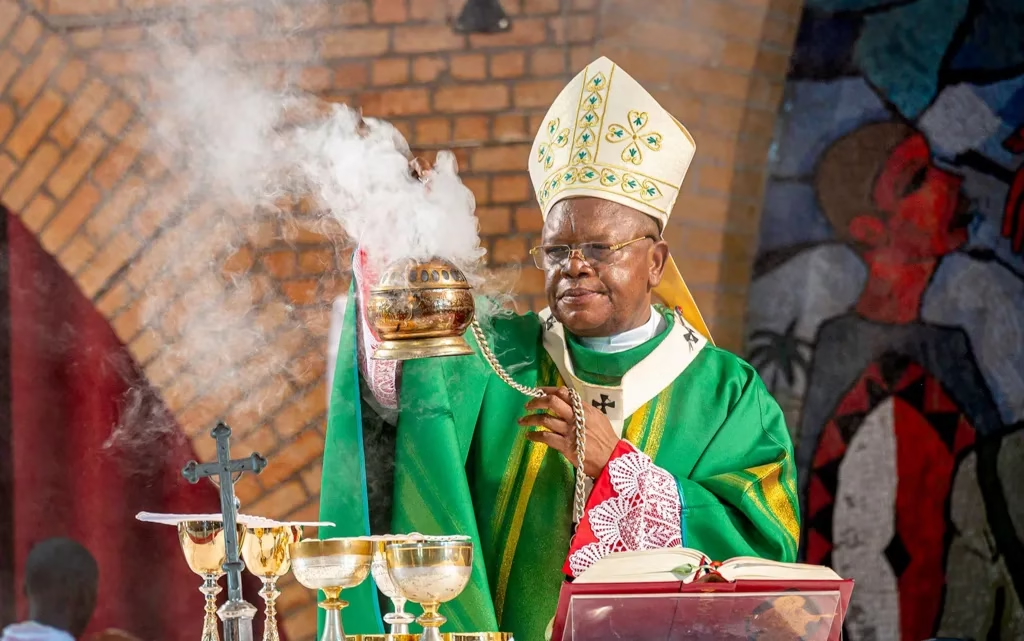
Nationality: Congolese
Age: 65
With Catholicism rapidly expanding across Africa, many believe the next pope could come from the continent—and Cardinal Fridolin Ambongo of the Democratic Republic of Congo is a name gaining serious attention.
Appointed Archbishop of Kinshasa in 2018 and elevated to cardinal by Pope Francis, Ambongo has spent years serving on the front lines of the Church’s mission in one of the world’s most challenging regions. The DRC is overwhelmingly Christian, yet believers there have suffered violent persecution from jihadist groups, including affiliates of Islamic State. Amid this turmoil, Ambongo has emerged as a fearless defender of the Church and a powerful moral voice.
Doctrinally, he is known as a cultural conservative. He has strongly opposed the blessing of same-sex unions, stating they are “contradictory to cultural norms and intrinsically evil,” aligning with the traditional teachings of the Catholic Church.
Yet, Cardinal Ambongo has also voiced support for peaceful coexistence across faiths. In a 2020 interview, he said, “Let Protestants be Protestants and Muslims be Muslims. We are going to work with them. But everyone has to keep their own identity.” While some might view this as a sign of openness and pragmatism, others in the College of Cardinals may wonder whether he aligns fully with the Church’s mission to evangelize globally.
Even so, with his bold leadership, unwavering faith, and deep cultural roots, Cardinal Ambongo represents a historic possibility: the first African pope in modern times.
Peter Kodwo Appiah Turkson
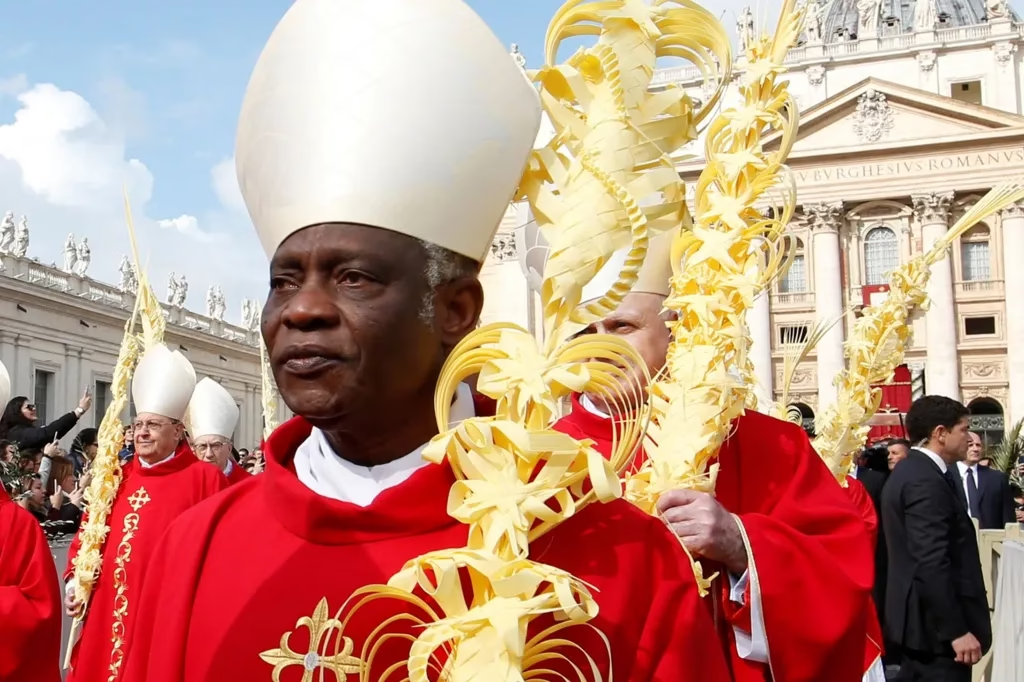
Nationality: Ghanaian
Age: 76
If elected, Cardinal Peter Turkson would make history as the first African pope in over 1,500 years—a milestone that would reflect the Catholic Church’s growing center of gravity in the Global South. Yet, like many papal contenders, Turkson has downplayed the idea of ambition. “I’m not sure whether anyone does aspire to become a pope,” he told the BBC in 2013.
Turkson also questioned the notion that demographics alone should drive the choice of the next pope. While acknowledging the Church’s rapid growth in Africa, he cautioned that “statistics shouldn’t determine spiritual decisions,” warning that such thinking could “muddy the waters.”
Born in Ghana, Turkson became the country’s first cardinal in 2003, appointed by Pope John Paul II. A decade later, as speculation swirled around Pope Benedict XVI’s resignation, Turkson was widely considered a frontrunner—bookmakers even listed him as the favorite before the conclave that ultimately chose Pope Francis.
Known for his dynamic energy and down-to-earth personality, Turkson once played guitar in a funk band—adding a rare note of musical flair to his resume. While doctrinally conservative like many African cardinals, he has taken notably progressive stands on social issues. During Ghana’s debate over harsh anti-LGBTQ+ legislation in 2023, Turkson publicly stated that homosexuality should not be criminalized—a position that set him apart from many African politicians and clergy.
That said, his career hasn’t been without controversy. In 2012, he drew criticism for comments at a Vatican conference that were interpreted as fearmongering about the spread of Islam in Europe. He later apologized, clarifying his intent.
Cardinal Turkson remains an influential figure in global Catholicism—respected for his intellect, his unique cultural perspective, and his commitment to social and environmental justice. If chosen, his papacy would mark a profound and symbolic shift in the Church’s global identity.
Peter Erdo

Nationality: Hungarian
Age: 72
Cardinal Peter Erdo: Hungary’s Church Leader with a Legacy of Leadership
Cardinal Peter Erdo, a member of the Church since the age of 51, holds significant influence, especially in Europe. Having twice served as the president of the Council of European Bishops’ Conferences between 2006 and 2016, Erdo is highly regarded across the continent, particularly among African cardinals and those involved in Catholic relations with the Orthodox Church.
As the Archbishop of Budapest and Primate of Hungary, Erdo’s background in a devout Catholic family under communist rule has shaped his strong, independent leadership style. Often seen as a potential “compromise” candidate, Erdo has earned respect for his diplomatic skills and deep understanding of both the Church and global politics.
Erdo played a key role in Pope Francis’s visits to Hungary in 2021 and 2023 and was a participant in the conclaves that elected both Francis and his predecessor, Pope Benedict XVI.
Known for his conservative stance on family values, Erdo’s views have garnered support among traditionalist factions of the Church. However, his political positions have sometimes put him at odds with more liberal voices. During the 2015 European migrant crisis, for example, he controversially argued that the Church should not be forced to accept migrants, calling it akin to human trafficking—a stance that aligns with Hungary’s Prime Minister Viktor Orban’s “illiberal democracy.”
A figure of both respect and controversy, Cardinal Erdo remains a powerful player in the ongoing conversation about the future of the papacy.
Angelo Scola

Nationality: German
Age: 71
As Germany’s most prominent Catholic leader, Cardinal Reinhard Marx holds a position of significant influence within the Vatican. The Archbishop of Munich and Freising was appointed as an adviser to Pope Francis shortly after his election in 2013, where he played a key role in guiding the Pope on Church reform initiatives. For over a decade, Marx has also overseen the Vatican’s ongoing financial reforms, shaping the Church’s approach to modern governance.
Cardinal Marx has long advocated for a more inclusive stance on issues such as homosexuality and transgender rights within Catholic teaching, reflecting his progressive outlook. His calls for greater openness in the Church, however, have sparked both support and criticism.
In 2021, Marx offered to resign after acknowledging the Church’s failure to properly address the sexual abuse crisis in Germany. His resignation was rejected by Pope Francis, but the move highlighted the growing tensions between traditionalists and reformers within the Church.
Two years ago, Marx stepped down from the Council of Cardinals, the Pope’s most influential advisory body—a decision seen as a significant blow to his influence within the Vatican and a setback in his career. Despite this, his prominence within the German Church and his strong connections in Rome continue to make him an important figure in the ongoing debate about the future direction of Catholicism.
Marc Ouellet

Nationality: Canadian
Age: 80
Cardinal Marc Ouellet has long been considered a potential papal candidate, with two previous moments of serious speculation in 2005 and 2013.
For many years, Ouellet oversaw the Vatican’s Dicastery for Bishops, the department responsible for selecting bishops worldwide. This position placed him at the heart of the Church’s hierarchical structure, giving him considerable influence in shaping the future leadership of Catholicism.
As an octogenarian, Ouellet will be excluded from participating in the upcoming conclave, which may limit his prospects of being elected pope. Despite this, his extensive experience and deep involvement in the Church’s inner workings keep him a respected figure.
Known for his conservative views, Ouellet advocates strongly for the maintenance of celibacy for priests. He also opposes the ordination of women priests, although he has called for greater involvement of women in the Church’s administration, famously stating, “Christ is male, the Church is feminine.”
Though he may be on the older side for a papacy, his significant role in shaping the modern Catholic hierarchy and his steadfast positions on key issues continue to keep Cardinal Ouellet relevant in discussions about the future of the Church.
Robert Prevost
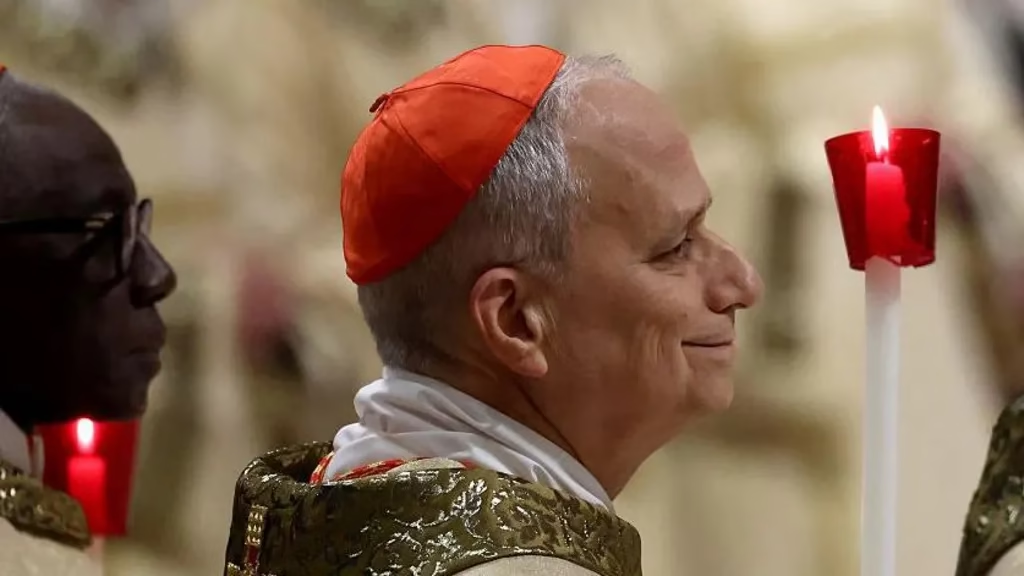
Nationality: American
Age: 69
Could the papacy go to an American for the first time?
Chicago-born Cardinal Prevost is certainly seen as having many of the necessary qualities for the role.
Two years ago Pope Francis chose Prevost to replace Marc Ouellet as prefect of the Vatican’s Dicastery for Bishops, handing him the task of selecting the next generation of bishops.
He worked for many years as a missionary in Peru before being made an archbishop there.
Prevost is not just considered an American, but as someone who headed the Pontifical Commission for Latin America.
He is seen a reformer, but at 69 might be viewed as too young for the papacy. His period as archbishop in Peru was also clouded by allegations of covering up sexual abuse claims, which were denied by his diocese.
Robert Sarah

Nationality: Guinean
Age: 79
Cardinal Robert Sarah is widely respected by conservative factions within the Catholic Church for his firm adherence to traditional doctrine and liturgical practices. Often seen as a critic of Pope Francis’s more reformist approach, Sarah represents a more conservative vision of the Church’s future.
The son of a fruit-picker in Guinea, Sarah’s rise within the Church was remarkable. At just 34, he became the youngest archbishop in the world when Pope John Paul II appointed him prelate of Conakry, Guinea. Over the years, he built a distinguished career, culminating in his retirement in 2021 as head of the Vatican’s Congregation for Divine Worship and the Discipline of the Sacraments, the office responsible for overseeing the Church’s liturgical rites.
Though not considered the frontrunner for the papacy, Cardinal Sarah’s reputation for orthodoxy and his strong ties with conservative cardinals could make him a formidable candidate within certain circles. His unwavering commitment to tradition and liturgical reform may resonate deeply with those seeking to preserve the Church’s classical values.
Michael Czerny

Nationality: Canadian
Age: 78
ardinal Michael Czerny, a fellow Jesuit like Pope Francis, has made a significant impact within the Catholic Church, particularly in the areas of social justice and humanitarian work. Appointed cardinal by Pope Francis, Czerny has long been involved in the Church’s charitable and missionary efforts worldwide.
Born in what was then Czechoslovakia, Czerny’s family relocated to Canada when he was just two years old. Over the course of his career, he has worked extensively in Latin America and Africa, founding the African Jesuit Aids Network and teaching in Kenya. His deep commitment to addressing global issues has made him a respected figure, particularly among progressives within the Church.
Currently, Czerny leads the Vatican’s Dicastery for Promoting Human Integral Development, where he continues to champion efforts on behalf of the poor, marginalized, and vulnerable. His close relationship with Pope Francis and his progressive stance on key social issues make him a strong contender for the papacy.
However, while his candidacy holds much appeal, it seems unlikely that the cardinals would choose a second Jesuit pope in succession, given the historical rarity of this occurrence.



